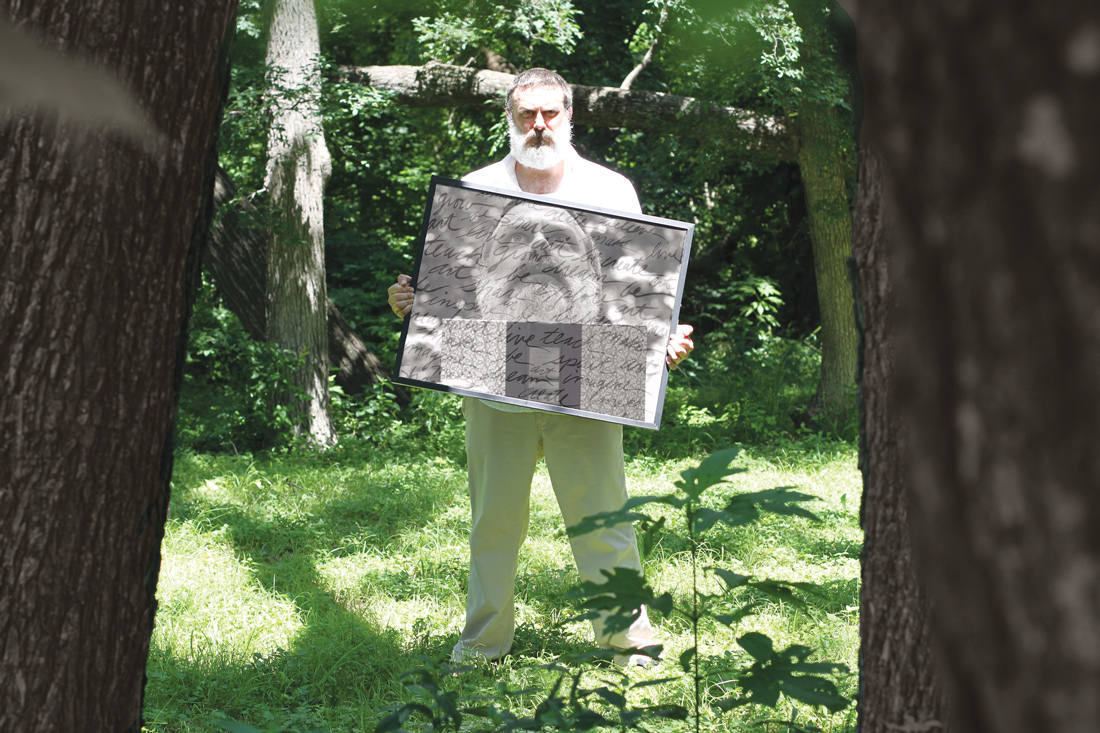Reading Miguel de Cervantes’ Don Quixote is a strangely unsettling experience. It was written when the novel form was just being invented, which is perhaps why you don’t get the sense of a beautifully polished, structurally sound literary work like you do with Jane Austen. Cervantes’ saga wanders in circles, repeats itself, goes off on tangents, and engages in metafiction. That’s pretty prescient for a work of long-form fiction first published in 1605. Brenda Withers brings an appropriately postmodern take to her free adaptation. The Quixotic Days and Errant Nights of the Knight Errant Don Quixote is currently enjoying its world premiere at Amphibian Stage Productions.
As in Cervantes’ work, the play concerns a Spanish gentleman named Alonso Quixano (Jeremy Schwartz) who goes insane from too much reading and imagines himself a medieval knight named Don Quixote de la Mancha. What’s different about this adaptation is that the time is left ambiguous. Characters use smartphones and dress mostly in contemporary outfits, though a notable exception is when Quixote’s idealized love Dulcinea (Christie Vela) shows up dressed as a 16th-century Spanish noblewoman and singing “I’m Wild About That Thing,” a 1929 torch song popularized by Bessie Smith, while backed by a four-piece skiffle band.
The first thing you’re going to notice is the set. Courtesy of director Matthew Earnest and scenic designer Sean Urbantke, this is the most ingenious theatrical set we’re likely to see this year. White wooden panels in the back with a clear plastic shower curtain in front of the actors indicates an antiseptic hospital, but later on they come to mean the front of Quixano’s house. Later on, the crew members and some of the actors move them to reveal a back wall and four huge swinging doors on either side of the stage covered with artificial turf to denote Quixote’s adventures in the wilderness with Sancho Panza (Ivan Jasso). Quixote’s tilt with the windmill is imaginatively conceived, too, though I could have done without the part when the windmill takes human form (Nathan Smith) in Quixote’s fevered imagination.
Withers has a background in comedy, having collaborated with Mindy Kaling on the Hollywood satire Matt & Ben. (She has also acted in two of Amphibian’s previous plays, Not Medea and her own The Ding Dongs.) She adds a number of gags, like when Sancho first hears Don Quixote’s name and thinks he’s talking about his donkey, Jorge. Later on, when Quixote and Sancho ride off on Rocinante and Jorge (rechristened Rucio), the animals are represented by a penny-farthing and a regular bicycle, respectively, with a horse’s and donkey’s head mounted on them. The two men take the heads off the bikes and put them on as they ride. Somehow, rather than puncturing the atmosphere, the gags seem in keeping with the spirit of Cervantes’ novel about a man who sees his own dream-world rather than reality.
Less successful are the play’s musical interludes, which include the Bessie Smith torch song, a choreographed dance number performed by Quixano’s friends and family after they set fire to his books, and the concluding bit with Dulcinea lip-syncing to Conchita Supervía’s recording of “Al pensar en el dueño de mis amores.” I must confess I have no idea what the hell these are doing here. The pantomime with a lover and his lass in fairy costumes (Smith and Steph Garrett) seems to have flown in from a Hip Pocket production, too.
Near the end, though, the show takes on its power as the other characters coax Quixote into a cage and break him of his delusion. Schwartz seemed to be having trouble with some of his lines during the performance that I saw, but he does project the transcendent power of the man’s desire to be a knight. He’s partnered well by Jasso, who’s a tall, thin young man where Sancho Panza is usually played by a short, fat one. He does magnificently by the climactic speech when Sancho rescues a despondent Quixano by seeing the value of Quixote’s vision of a better world. This distillation of the book’s wisdom is what gives us reason to hope that the play can be made into a stronger, more concentrated version of itself in the future. It also gives us a compelling reason to see the play now.
[box_info]The Quixotic Days and Errant Nights of the Knight Errant Don Quixote
Thru Aug 2. Amphibian Productions, 120 S Main St, FW. $18-33. 817-923-3012.[/box_info]












